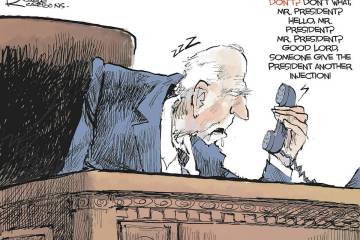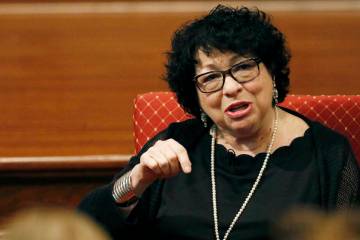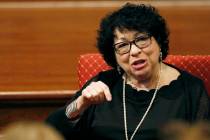COMMENTARY: To make students learn, show them it’s worth the hard work
When asked what one thing he would change to improve the education system, Microsoft founder Bill Gates said it was students’ intrinsic motivation about learning and their mindset toward it.
“The ideal is that the students [understand] that engaging in something fairly abstract and disconnected, like writing an essay or figuring out how to solve for x and y, will lead to them having a career that, in terms of freedom, [and] rewarding them economically … that it’s to a huge degree in their self-interest to engage in those things,” he told Jeffrey Goldberg, The Atlantic’s editor-in-chief, in a recent podcast.
Gates couched this by saying that for students to make these connections, they needed to be taught by highly knowledgeable teachers who are skilled at challenging them to work at the very edges of their ability.
But still. It’s notable that this idea is finally emerging that learning cannot be imparted to students via some magical form of instruction, but is a partnership that students enter into with their educators. This follows decades of simply throwing money and resources at high-risk populations and hoping for the best.
The question in education then becomes: How do we intrinsically motivate students?
Well, that part can’t actually be done. Students are rational actors, in the classic economic sense, and they see what’s going on in the adult world. It’s not hopeful.
A decade ago, it was thought that setting college-going expectations for potential first-generation university students was the best way to ensure high school and college graduation rates would soar.
That wasn’t untrue — both those numbers have gone up for low-income and nonwhite students. College completion, however, isn’t keeping up with the good news.
According to a recent analysis by the National Student Clearinghouse Research Center, 62 percent and 63.2 percent of white and Asian students, respectively, completed a degree or certificate within six years of entering a postsecondary institution, while Hispanic and black students graduated at rates of only 45.8 percent and 38 percent.
There are many factors causing this, including brown and black students entering college with poorer academic skills, low income and no family history of college.
But the net result is a slew of students of color bouncing back into their communities with no college degree and a mountain of student debt.
And in a family with no college graduates, it takes just one story about a sibling or cousin bombing out of university in debt to make post-secondary education a no-go.
Perhaps worse, though, is that at the same time that nonwhite students are being bombarded with the gospel of college as an economic booster, they also know that a degree doesn’t guarantee a better life.
Countless research has been done showing that nonwhites battle implicit and explicit bias in hiring — and no studies have yet proved that bias-reducing hiring practices and diversity training move the needle on making nonwhites a well-represented and included presence in work communities.
The opposite is true.
Oftentimes, after scaling the mountain of achievement and landing the lifelong dream of a good-paying job, those who have worked the hardest to succeed feel the worst about their professional lives.
A recent catalyst.org survey of 1,600 professionals working in corporate and noncorporate organizations found that 60 percent of the nonwhite people asked said they feel onguard at work, ready to deal with potential racial and/or gender bias.
In short, it’s not entirely fair to students to expect that they walk into school every day with the internal motivation necessary to master academic writing and algebraic concepts so they can eventually land a great job.
Though we should continue encouraging them, ultimately, students will be more self-motivated to achieve academically when the incentives of economic freedom and professional satisfaction become more apparent in their lives — and in their family’s lived experience.
Contact Esther Cepeda at estherjcepeda@washpost.com.




























